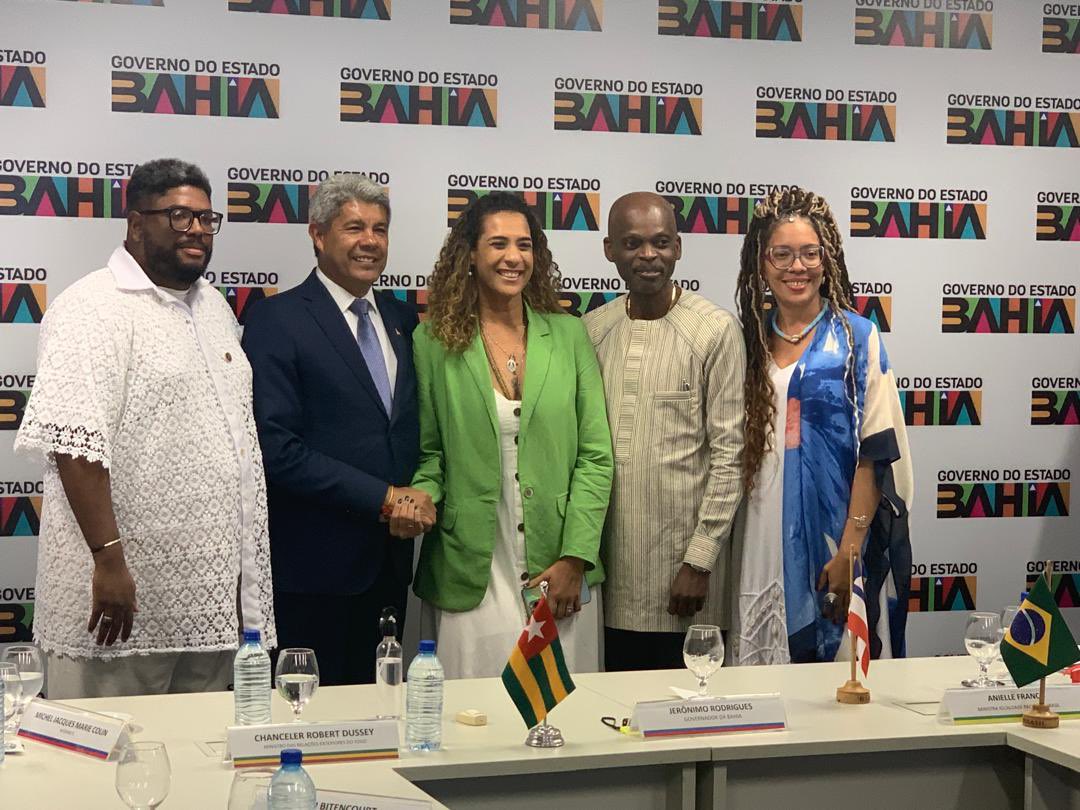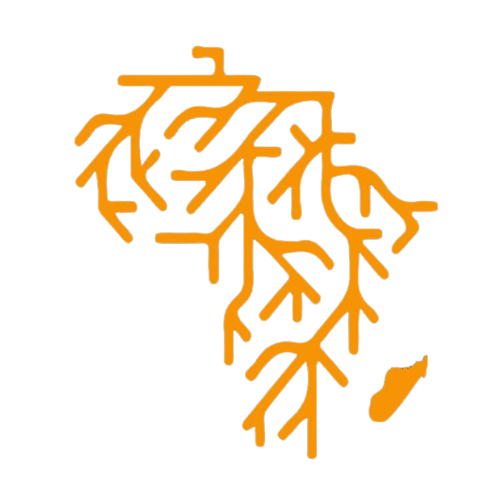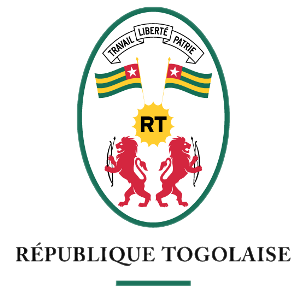LETTER OF RECOMMENDATIONS FROM THE AFRICAN DIASPORA
Honoring ancestry and celebrating the diversity of Afro-diasporic voices from experts, cultural personalities, references from social movements, and other representatives of civil society,
Recalling the Conference of Intellectuals of Africa and the Diaspora, held in Dakar in 2004, the 2nd Conference of Intellectuals of Africa and the Diaspora, held in Salvador in 2006, and the Global African Diaspora Summit, held in Johannesburg in 2012,
Reaffirming the Durban Declaration and Programme of Action, adopted in 2001, recalling the proclamation of the International Decade for People of African Descent (2015-2024) and supporting its renewal for an additional ten years,
Celebrating the Decade of African Roots and the African Diaspora (2021 to 2031) established by the African Union,
Considering the need to establish a new paradigm of humanity that integrates philosophical and epistemological values inherited from Africa by. the diaspora such as circularity, playfulness, and a matriarchal foundation,
We, the participants of the 1st Conference of the African Diaspora in the Americas, held on August 29 and 30, 2024, in Salvador, address the authorities of the African Union and the countries of the Americas who will meet on August 31, 2024, as well as the 9th Pan-African Congress in Lomé, from October 29 to November 2, 2024, to make the following recommendations on “Pan-Africanism Memory, Restitution, Reparation, and Reconstruction”:
- Strengthen around the Ubuntu philosophy Pan-Africanism in the 21st century, characterized by the recognition of the cultural, spiritual and linguistic unity and circularity between African peoples and the Diaspora, made up of their emigrated communities and populations of African origin living in countries on other continents.
- Mainstream the ideals of Pan-Africanism and the Ubuntu philosophy in efforts to seek reparations and to reform international institutions and policy making within states by increasing the representation of African countries in international organizations and fora and coordinating positions between African and Afro-diasporic countries on topics of common interest in these fora and organizations.
- In the spirit of the establishment of the 6th region of the African Union, the Pan-Africanism planning group urges the African Union to establish a permanent agency, preferably in Salvador, Bahia as a means/tool to restore the history of Pan-Africanism that acknowledges the contribution of women, youth, grassroots organizations etc., in order to develop a Pan- African consciousness among the masses of African peoples, utilizing traditional and new technologies.
- Organize, strengthen, and fund global academic, educational, artistic cultural, and political networks for dialogue, preservation, and of the right to memory, ancestral and spiritual knowledge, and the shared history between African populations and the Diaspora, including the elaboration of cartographies.
- Identify, inventory, and promote the cultural heritage of afrodiasporic peoples, highlighting women as central subjects in the production and preservation of identity, knowledge, culture, and memory.
- Encourage the creation of transnational initiatives for a Museums, libraries and repositories of the African Diaspora and a network of African and Diaspora archives focused on safeguarding and providing access to documentation in different media.
- Encourage comprehensive educational programs that integrate African and Diaspora histories and memories at all levels of education supported by specific forums and funds to share best practices in African and afrodiasporic countries.
- Combat algorithmic racism in the context of new technologies through regulation, increasing the representation of African and people of African Descent in social media, ensuring the integrity of information related to the history of Africa and the Diaspora, and establishing an open database with relevant information for the preservation of African and Afro-diasporic memory.
- Strengthen, encourage, and provide adequate funding for anti-racist policies for sustainable development and the promotion of rights, which may include: the restructuring of energy matrices, with the development of renewable and safe sources; efficient food production and programs to . combat hunger, poverty, and food insecurity; sustainability and environmental justice; revision of justice systems, including penal and criminal; expanded health strategies that consider the epidemiological specifics of the diversity of countries and enable actions for the prevention and` eradication of-diseases, as well as the promotion of mental health; education and curricula that recognize the contribution of African peoples and Black individuals, their knowledge, culture, and traditions, authors and reinforce Black identity, with special attention to children and adolescents and rural education; promotion of gender equality and combating violence; promotion of access to /housing; recognition of the trafficking of enslaved people as a crime against humanity by historically involved countries; increasing the participation of Afro-descendant individuals and especially women, in international and national forums of debate and power spaces.
- Strengthen international cooperation in projects dedicated to link the African continent and the Diaspora, including through: facilitating mobility and supporting students, teachers, and researchers; strengthening institutions and educational programs that promote the mobility of African and Afro-diasporic students; creation of the Federal Africa-Brazil University in Bahia, expanding cooperation with other African and Afro-diasporic countries; exchange between traditional Afro-descendant communities to share knowledge, including intergenerationally and considering the specificities of each people.
- Manage and defend the interests of the diaspora through the creation of a multilateral institution headquartered in Salvador.
- Promote knowledge management, focusing on the Afro-diasporic Black community, through the promotion, training, and appreciation of racial equality managers; conducting censuses of the African Diaspora as a way to understand how many and who the Afro-descendants are in each country and in the world and how they move between Africa and the world: promotion of digital inclusion, especially among the youth.
- Promote the full implementation of the Durban Declaration and Plan of Action, through a holistic conception of reparation in the political, economic, financial and social dimensions, including the recognition of slavery and transatlantic trafficking as crimes against humanity. Consider reparations as a means of combating institutional racism, for the full integration of Africans into Afro-diasporic societies and redistribution of power. These objectives should be achieved through:
- National and international institutions dedicated to reparations and financing by specific funds from former colonial and enslaving bodies to promote the, economic, social and cultural development of African and Afro-descendant populations, both in Africa and in the countries of the African diaspora ;
- Broad social participation that recognizes local and community needs ;
- Dissemination of statistical means that recognize the existence of African populations and prevention of their invisibility ;
- Creation of international mechanisms, such as the Reparations Commission at the Human Rights Council and an International Reparations Tribunal, and the conclusion of the negotiation of the United Nations International Declaration on the Rights of People of African Descent ;
- Encouragement of international cooperation on reparations policies, with the creation of an electronic portal gathering information on the issue in several languages ;
- To oppose coercive measures and sanctions that jeopardize the advancement of social rights of afro-diasporic populations.
- Promote the rights of the black population in Africa and the diaspora including the migrant population, prioritizing the health and well-being of both the people of Africa and the Diaspora, and addressing the persistent ‣ grievances arising from chattel slavery, colonialism and neocolonialism, including the adoption of accessible and specific mental and physical health policies for the black population, anti-racist public safety policies, especially for black youth, and decent work policies, including people released from prison.
- Promote social and intersectional policies to protect women, the elderly, children and young people, people in prison, people with disabilities and migrants and create mechanisms, including financial ones, to ensure greater participation of women in positions of power in politics and the private sector, and encourage inter-religious dialogue to promote peace and a culture of tolerance.
- Establish funds dedicated to the restitution of cultural assets that are material and intangible/immaterial, that were destroyed or unjustly taken from Africans and their descendants, as well as the preservation of these assets, with the aim of recognizing and making visible the intellectual, spiritual, scientifical, technological contribution of the African people.
- As a tool for reparation, guarantee land distribution policies and landownership for traditional communities and in places where people of African descent were systematically excluded from land ownership, including recognition and financial reward the contribution of these communities to environmental preservation and sustainable development, and in order to combat climate change and environmental racism.
- Recognizing the importance of Haiti and its historical role in the fight against chattel slavery, colonialism and racism, take into consideration the need for the Haitian people to be the foremost beneficiaries of measures for the losses suffered in the decolonization process, and in this context, support the complete decolonization of the Caribbean. Haiti paid an enormous amount of money for its independence and until now has been a victim of historical boycotts.
August 30, 2024, Salvador, Bahia





